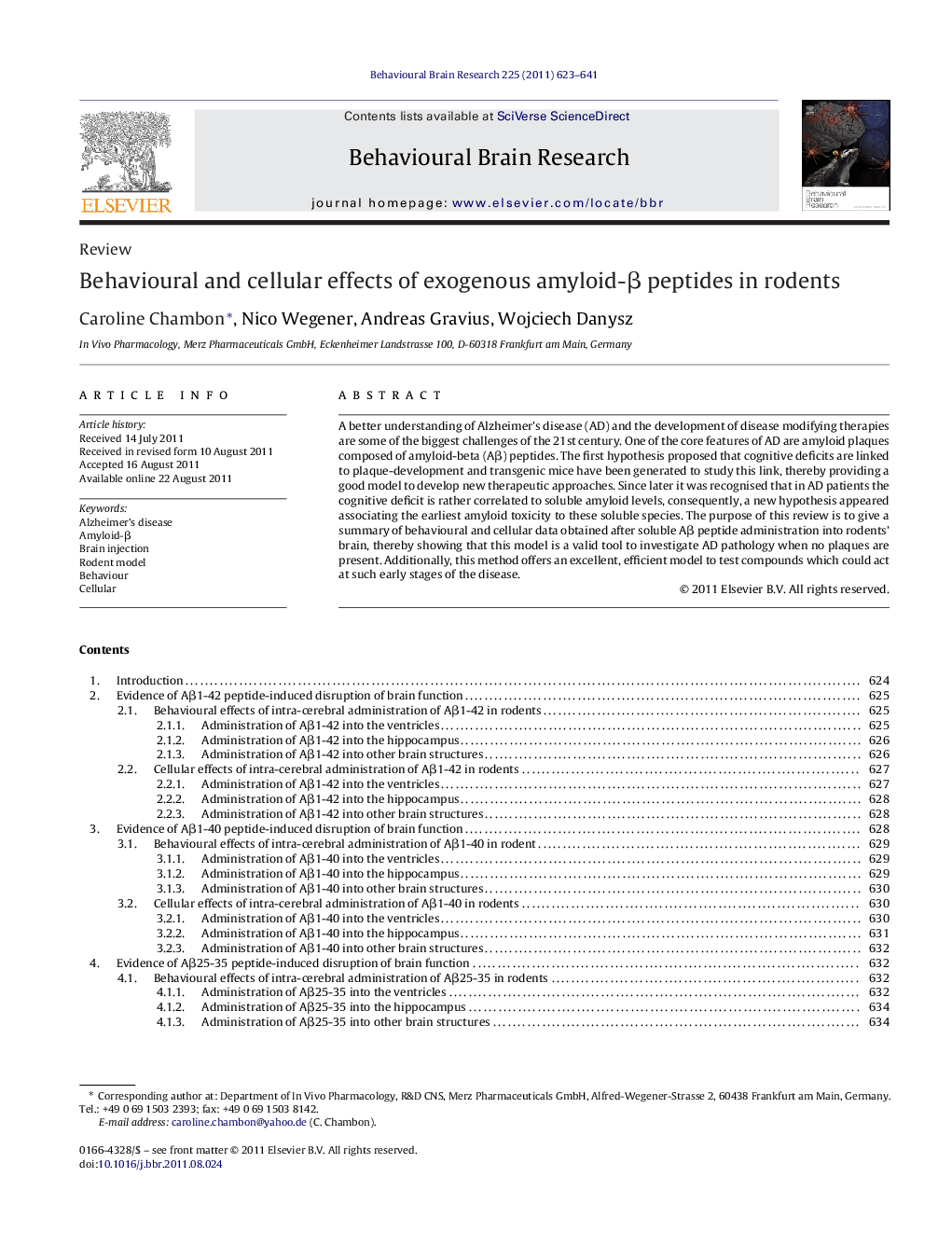| کد مقاله | کد نشریه | سال انتشار | مقاله انگلیسی | نسخه تمام متن |
|---|---|---|---|---|
| 4313595 | 1290001 | 2011 | 19 صفحه PDF | دانلود رایگان |

A better understanding of Alzheimer's disease (AD) and the development of disease modifying therapies are some of the biggest challenges of the 21st century. One of the core features of AD are amyloid plaques composed of amyloid-beta (Aβ) peptides. The first hypothesis proposed that cognitive deficits are linked to plaque-development and transgenic mice have been generated to study this link, thereby providing a good model to develop new therapeutic approaches. Since later it was recognised that in AD patients the cognitive deficit is rather correlated to soluble amyloid levels, consequently, a new hypothesis appeared associating the earliest amyloid toxicity to these soluble species. The purpose of this review is to give a summary of behavioural and cellular data obtained after soluble Aβ peptide administration into rodents’ brain, thereby showing that this model is a valid tool to investigate AD pathology when no plaques are present. Additionally, this method offers an excellent, efficient model to test compounds which could act at such early stages of the disease.
► Small Aβ oligomers are linked to an increased neurotoxicity.
► We reviewed data obtained after soluble Aβ administration in the rodent's brain.
► The model reflects a large spectrum of the AD symptomatology in a short time scale.
► The model seems to be a valid and promising model for pharmacological screening.
► The model can be used as early “filter” to evaluate a compound for AD.
Journal: Behavioural Brain Research - Volume 225, Issue 2, 1 December 2011, Pages 623–641